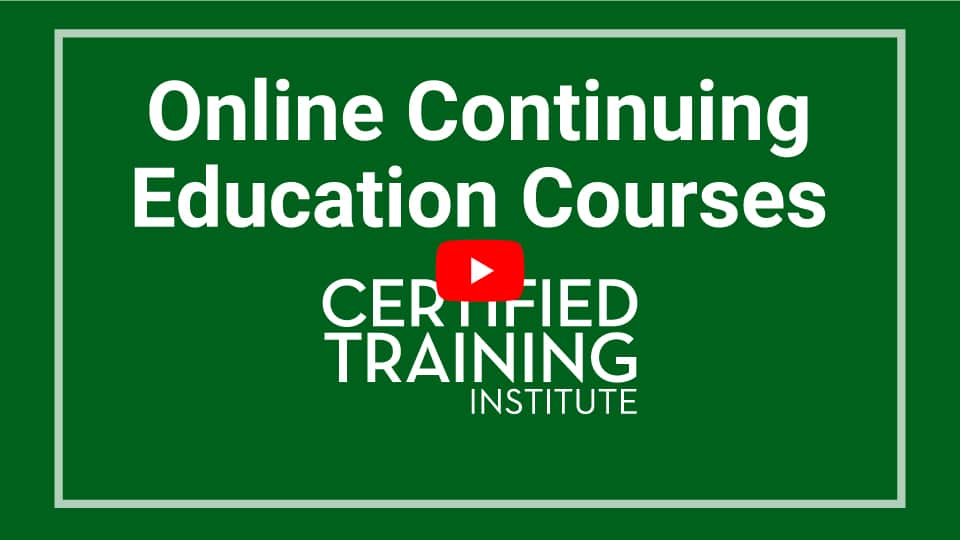Pesticide Applicator Continuing Education
Courses must be completed by 11:59pm EST 10/31, annually
Each course includes an official certificate of completion that you can save for your records. Looking for state reporting information? Learn more here.
Renewal Deadline:
Applicators must renew their licenses every 5 years by October 31st.
CE Requirements:
Commercial applicators must complete 8 units of core and 16 units for each category.
Private applicators must complete 8 units of core and 16 units of Private Part 2.
Only 25% of your continuing education hours can be taken online.
New Jersey Aquatic Pest Management
Aquatic ecosystems are extremely complex and fragile. This course covers the many aspects necessary for managing aquatic pests, from site evaluation and pest identification to pesticide application and treatment evaluation. Risk communication strategies are included, along with a variety of control methods in addition to aquatic pesticides.
New Jersey Common Turfgrass Weeds
Managing weeds in a turf stand can be a tricky proposition. Often times the client fails to recognize that the presence of weeds in a turf stand is the result of poor turf, not the cause. This course will provide applicators with a working knowledge of weed biology, weed identification, and how herbicides work.
New Jersey Fumigation Management
There are many regulations and requirements for the use fumigation products. One of the biggest requirements is preparing a fumigation management plan (FMP). This course will help you navigate the requirements of a fumigation product label, SDS sheet, and Applicator’s Manual, and will also walk you through a step-by-step demonstration of how to fill out an FMP for the control of burrowing rodents.
New Jersey German Cockroach Control
German cockroachs can be a difficult pest to control. The temptation for most pest control operators is to reach for the pesticide right away, but there is much more involved in controlling a German cockroach infestation. This class will focus on an eco-friendly approach to German roach control strategies in the most difficult environments.
New Jersey IPM Practices for Landscape Pest Management
This course, approved by the New Jersey Department of Agriculture, discusses benefits and considerations for developing an integrated pest management (IPM) program in New Jersey. Topics include a variety of pest-management methods, such as augmentation, mechanical and cultural control, sanitation, and pesticide use.
New Jersey Management of Woodchucks
Woodchucks are also known as whistle pigs or groundhogs. Woodchucks are basically the building contractors for many animals in the wildlife kingdom because of the holes they dig. This course will discuss the control and management of woodchucks.
New Jersey Microbial Pest Management
Managing microbial pests in water systems is essential for human health and the wider environment. This course will cover pest identification and methods of control. It will also discuss common application methods and ways to protect yourself from hazards when using biocides.
New Jersey Pesticide Emergency Management and Environmental Protection
This course, designed for New Jersey pest managers, teaches key principles for safe and legal pesticide management. The course emphasizes elements of planning, application and cleanup along with pesticide alternatives. Learn best practices like public notification, hazard warnings and management plan development.
New Jersey Review of Pesticide Use Hazards
By taking this course, you will learn how to recognize the toxicity danger pesticides present to humans, pets, wildlife and the environment, plus categories and designations of pesticides. This course provides a full exploration of pesticide hazards and classifications for New Jersey pest managers.
New Jersey Swimming Pool Pest Management
One of the main factors in swimming pool maintenance is water chemistry. A few different facets need to be maintained. These include the organic content in the water, the pH of the water, total alkalinity, and calcium hardness. This course covers the basics of swimming pool pest management.
New Jersey Understanding Rodenticides & Their Labels
Rodenticides are becoming a widely discussed and concerning topic in the pest control field. There is a growing public concern at the risk of secondary and non-target poisonings when rodenticides are used. As a pest control operator is it your responsibility to understand how rodenticides work and how to read their labels. This course discusses the common types of rodenticides, their appropriate application, the risks involved with the use of each type of rodenticide, and takes a look at specific label language.

